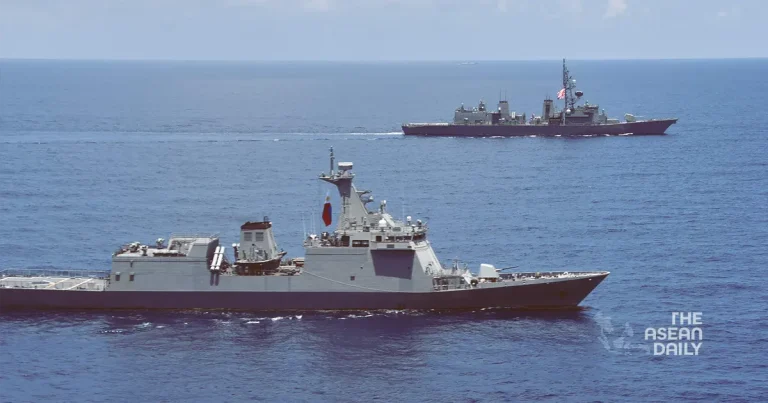2-8-2024 (MANILA) The Philippines and Japan have conducted their first-ever joint naval exercises in the contentious waters of the South China Sea. The landmark drills, which took place on Friday within the Philippines’ exclusive economic zone, mark a new chapter in the strategic partnership between the two nations and send a clear message to regional powers.
The Armed Forces of the Philippines (AFP) announced the successful completion of the exercises, emphasising their importance in strengthening regional and international cooperation. “This activity was part of the ongoing efforts to realise a free and open Indo-Pacific,” the AFP stated, underscoring the broader geopolitical implications of the joint manoeuvres.
The naval drills come on the heels of similar exercises conducted between the Philippines and the United States earlier in the week, highlighting Manila’s commitment to diversifying its military partnerships. These collaborative efforts reflect a growing trend among nations in the region to counter China’s increasingly assertive territorial claims in the South China Sea.
The joint exercises included a range of operational activities designed to enhance interoperability between the two navies. Two vessels from each nation participated in communications exercises, tactical manoeuvring, and photographic exercises, demonstrating the commitment of both countries to developing their combined maritime capabilities.
This naval cooperation follows a landmark military pact signed between the Philippines and Japan last month, which allows for the deployment of forces on each other’s soil. The agreement represents a significant shift in the defence policies of both nations and signals their determination to play a more active role in regional security.
Japan’s involvement in these exercises is particularly noteworthy, given its recent announcement of its most substantial military build-up since World War II. This move, seen as a departure from its post-war pacifist stance, reflects Tokyo’s growing concerns about regional security and its willingness to take a more proactive approach in safeguarding its interests.
While Japan does not have direct territorial claims in the South China Sea, it has its own maritime disputes with China in the East China Sea. The decision to participate in these exercises demonstrates Japan’s broader strategic interest in maintaining freedom of navigation and a rules-based order in the region’s critical waterways.
The South China Sea, a vital conduit for northeast Asia’s trade with the rest of the world, has long been a flashpoint of regional tensions. China’s expansive territorial claims, which overlap with those of several Southeast Asian nations including the Philippines, have led to increased militarisation and diplomatic friction in the area.




